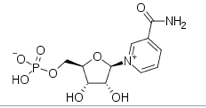
How can you make delay on your aging?
In Awaji island, aging is one of the most serious social issues as in other areas of Japan. One out of every three residents are over the age of 65. The local government of Awaji City recommends physical exercises to the Awaji residents for their health, even for those who are up to 100 years old.
While it is important for everybody to do exercise, daily meals play an important role to keep physical condition of elderly people as well. These days, “frailty” is a keyword in terms of the elderly people’s health. Frailty means weakness or fragility of physical activities like strength of your grip or for standing. Frailty thus means a stage between a healthy and an ill stage. Besides the physical frailty, social and mental frailties are also current issues to be solved in Japan. Although the physical frailty is inevitable for us, we can delay becoming frail by exercising and a good diet.
Proteins, sugars (carbohydrates) and lipids are three major nutrients for us. Since rice is a staple food in Japanese cuisine, Japanese get enough carbohydrates. Then it is suggested that elderly Japanese should consume more meat and not as much carbohydrates. We are usually eating 25-30 grams of meat at each meal which is 25-90 grams of meat per day. According to the statistics of Japanese diet, people around the age of 60 have 73 grams of meat per day, while people around age 70 have 69 grams per day. Thus, a decrease of meat intake along with aging is observed. Although less intake of carbohydrates is encouraged to keep better blood pressure and glucose concentration, the elderly people need to keep a good diet based on a good balance of nutrients including reasonable amount of carbohydrates. In terms of lipids, EPA and DHA in blue fishes are well known to help keep clear blood vessels, leading to avoid troubles like arteriosclerosis and cerebral infarction. Dr. Shigeaki Hinohara, a famous Japanese physician enjoyed his active dairy life up to 100 years old. He took olive oil every day with his breakfast as a good lipid source.


Based on recent progress in life science, intracellular mechanisms of aging and life span have been elucidated partly. Dr. D. Sinclair, a professor of Harvard Medical School, published a book regarding human life span entitled “Life span; Why we age and Why we don’t have to” (D.A. Sinclair and M.D. LaPlante, Atoria Books, 2019). Several scientific papers including a paper by Dr. M. Igarashi (NAD+ metabolism and Sirtuin in stem cells, SEIKAGAKU (2017) p555, Japanese Biochemical Society) have been published recently. Here progresses described in such book and papers are introduced briefly. When people develop in their mother, they start from a single fertilized egg cell. While development during pregnancy toward a fetus, the egg cell is divided into 60 trillion cells for completing maturation as a human body. During the pregnancy, a lot of genes in DNA are expressed one by one in an order along with the development, and proteins required for various organs like a mouth and lungs are synthesized. The mechanisms keep going on up to 20 years old for physical maturation, and then aging starts. During aging, are there any systems regarding sequential gene expressions (switching) as for the maturation? This is an important question. However not many answers have been obtained so far.
In this connection, Prof. S. Yamanaka, Kyoto University, Nobel prize winner, thought that functions of several key genes required for switching of the sequential events might be lost during aging. Then he and his colleagues found that artificial induction of four specific genes needed for the switching with molecular biological technics can cause restoration of youth in aged cells. This result suggested that aging is related to gene expression (switching) mechanisms. Addition of special chemical material (methyl) to DNA decreases along with aging, i.e. amount of methylated DNA is less in aged cells than in young ones. DNA methylation is needed for proper gene expression (switching). It is also known that addition of another chemical material (acetyl) to a protein histone which is bound to DNA can increase gene expressions (switching). This process is depressed by removing added acetyl with an enzyme called Sirtuins. It is known that Sirtuin activity decreases by aging, leading to decrease in gene expressions in aged cells. These observations in terms of decrease of Sirtuin activity by aging suggest that the decrease of Sirtuin could cause improper production of other proteins. Such changes of chemical modification of DNA and/or histone in aged cells affect the regulation of gene switching required for proper production of proteins to keep us healthy and young. In the book Dr. Sinclair describes several ways to avoid the aging depending on the change of mechanisms required for gene expressions. One of them is regarding Sirtuin. This enzyme needs Vitamin, NAD (nicotine-amide dinucleotide), for the function. It is also known that a precursor of NAD, NMN (nicotine-amide mononucleotide), can increase the decreased Sirtuin activity. NMN is commercially available now for delay of aging.
Vitamins are essential chemical elements for our lives and also needed for anti-aging process as described above. Japanese consume fruits which contain a lot of various vitamins, but the consumption level of fruits is one-third that of Dutch people whose consumption level is the highest in the world. Awaji Island is well known producer of fruit like Japanese oranges, figs, strawberries, and so on. Why don’t you eat more Awaji fruits and support the local activities and businesses, and your life span as well?
